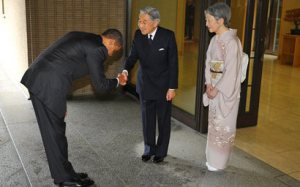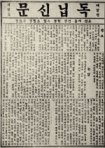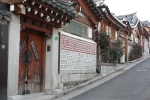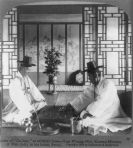Last week I headed up to the 9th floor of my office building to take care of some routine duties. The floor is filled with young interns, dressed in the tattered jeans and flannel shirts that are the trend during Korea’s wintry weather. Turning a corner I bumped into one of them, a young man who looked to be barely in his twenties. He bowed to me, and it was so abrupt and unexpected that I didn’t return it.
I worried at first, after my mind had a chance to register what had just transpired, that perhaps I had come across as rude. As a foreigner it’s something I’ve become at times acutely conscious of here, not wanting to unknowingly give offense. Then – and this surprised me – I experienced a sense of pride. My chest puffed out a bit and my head became inflated by the thought that this person had acknowledged me as a superior. As superior.
That felt good. But frankly I doubt its how Japan’s Emperor Akihito took Obama’s bow.
Conservatives across the US are deriding the president for sending the message that America now “willingly prostrates itself before the rest of the world.” They say Obama seeks to “transform the United States,” to “teach Americans to bow before monarchs and tyrants.”
My sense is that the bow was in fact not intended for Akihito himself but rather to win over the Japanese public, which has grown increasingly anti-American in recent years. And while the outcome of Obama’s visit to Tokyo may not have been as frutiful as he would have liked, that simple gesture likely went some way in assuaging local sentiment. It was an aggressive, not a passive, move.
I studied judo for about five years when I was in my teens. The first thing you do before beginning a match is bow to your opponent. It doesn’t mean you’re going to roll over and let him throw you around like a rag doll. You bow and then go at him, with of course the utmost of respect as an opponent, an enemy and even perhaps a teacher. It’s an attitude America would do well to embrace.
Which brings me to China. Some two centuries ago a British admiral traveled to the court of the Qianlong Emperor, the Son of Heaven, in order to convince him to loosen trade restrictions that were then bleeding England dry. There were some issues of protocol to be worked out before the meeting, however, including making sure that Adm. Macartney banged his head on the floor before the emperor as a sign of England’s submission to the greatness of the Middle Kingdom. The proud Englishman of course refused.
I remember the event because of something I heard during a college lecture. According to an employee of the East India Company and member of the mission who recorded the journey, Macartney despite his obstinance apparently tripped and banged his head while approaching the emperor, who then graciously accepted the Englishman’s submission, though he refused his demands.
The failure of the mission has been described by scholars as a missed opportunity for China to accomodate the West, a political stumble by Beijing – not Macartney – that would lead to nearly two centuries of chaos and instability that China is now looking to put behind istelf. Now it’s America that is indebted to Beijing.
Obama has called hismelf America’s first “Pacific President,” and if his recent trip through Asia demonstrates anything, it’s that he’s learned to speak Asia’s language. Besides the bow, he’s drawn fire for backing off on pressing China over its human rights situation, something his critics have described in words akin to the president knocking his head on the floor before Beijing. Or bowing low.
In truth, as this piece in the Asia Times points out, Obama’s outward show of “deference” is no mere sign of weakness, it is not fueled by an apoligist approach to foreign relations. It is a genuine display of respect that allows the wheels of diplomacy to turn all the more smoothly and reflects a measure of confidence that America does not diminish itself simply by acknowledging its opponents.
In David Halberstam’s last book on the Korean War, he quotes a converstaion that Mao Zedong is said to have had with Zhou Enlai regarding the commander of U.S. forces, Gen. MAcArthur.
“What kind of man is he,” Mao asks. “Arrogant,” comes the reply, at which point Mao smiles and says, “Good, an arrogant man is easy to defeat.” That war still hasn’t ended.
Filed under: America, Asia, history, Korean War, Opinion, Politics | Tagged: America, bow, China, history, Japan, Korean War, Obama, Politics, US | Leave a comment »
















